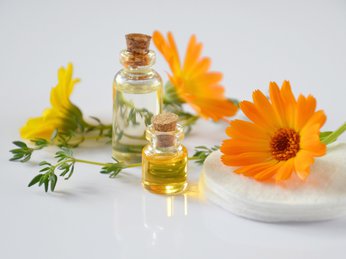Vegetable oil and skin
Natural oils, such as coconut oil, shea butter oil, and olive oil, have been used for skin care and hair care for centuries. Generation after generation have touted them for various moisturizing, protective, and antibacterial qualities. Over the last decade, as people strive to find additive-free, affordable, and effective products, let explore what science discover about them.
Where to Start With Natural Oils for Skin Care
:Before applying any oils to the skin, it is important to receive a recommendation from your doctor. But to get you started, here are some of the most popular varieties of natural oils
1. Coconut Oil
Coconut oil is easily absorbed into the skin and is known to have many health benefits, including those from vitamins E and K, as well as its antifungal and antibacterial properties. The one big exception? Along with cocoa butter, coconut oil is likely to cause breakouts. “In general, coconut oil is a great option for almost everybody, except if you have oily skin and you're acne prone, I would not use it on the face,” Katta says. In a study published in the journal Dermatitis, researchers found coconut oil was better than olive oil at moisturizing skin when used in a carrier. Remember to look for cold-pressed, unrefined coconut oil for your face or skin care.
2. Olive Oil
Olive oil doesn’t typically trigger allergic reactions, Katta says, but for the best results, be sure to opt for the extra-virgin variety. Olive oil contains vitamins A, D, E, and K, and some research, such as a study published in October 2016 in the journal Nanomaterials and Nanotechnology, offers scientific evidence of its potential as a moisturizer. With its heavy consistency, it is a great choice for an all-body application, Katta says. You may even want to try an olive oil cleanser or bar of soap for a clean that won’t dry out your skin.
3. Sunflower Seed Oil
Sunflower seed oil is widely available, high in vitamin E, and absorbs easily into the skin, making it an excellent choice as a natural moisturizer. One study, published in the journal Pediatrics Dermatology, found that in infants sunflower oil better protected the skin’s barrier and didn’t cause or aggravate atopic dermatitis (a form of eczema), as compared with olive oil.
4. Shea Butter
Derived from the nuts of the African shea tree, shea butter is a tallow-like substance that is commonly found in a solid form, but it melts at body temperature, and is sometimes used as a moisturizer and hair product, says Katta, adding she hasn’t seen her patients have allergic reactions to it. Unrefined, organic shea butter can also be combined with olive oil or coconut oil to create a smoother texture for application.
5. Jojoba Oil
Jojoba is native to Mexico and the American Southwest, where its oils have been extracted from its seeds and used medicinally by Native American tribes. “I don't see much in the way of allergic reactions to [jojoba], either. I haven't seen that be as popular [as some other natural oils], so I just don't have a lot of experience with it,” Katta says. In a review publishedin the Journal of the Italian Society of Dermatology and Sexually Transmitted Diseases, researchers found jojoba oil may have anti-inflammatory and wound-healing effects, among other skin benefits.
6. Almond Oil
Made from pressed raw almonds, almond oil is full of health benefits, such as vitamin E, zinc, proteins, and potassium. It has a lighter texture than olive oil and shea butter, which many find appealing to use on the face. But Katta says that sweet almond oil can result in allergic responses, so she recommends avoiding it if you have sensitive skin.
7. Grapeseed Oil
Containing vitamin E and essential fatty acids, grapeseed oil is lightweight compared with other natural oils. It also offers antioxidant, antimicrobial, and anti-inflammatory properties, according to an article published in September 2016 in the journal Nutrition and Metabolic Insights. From her experience, Katta says grapeseed oil is less commonly used for skin than the other oils, but she’s optimistic about its potential use for this purpose. “I have not seen allergic reactions to grapeseed oil,” she says. “It definitely has a number of phytochemicals that have antioxidant benefits, too, so that's kind of intriguing.”
8. Rose Hip Seed Oil
Extracted from the seeds of wild rose bushes, rose hip seed oil has seen a surge in popularity and is increasingly found in facial skincare products that tout moisturizing, anti-aging benefits. A review of research published in January 2018 in the International Journal of Molecular Sciences notes that the essential fatty acids and antioxidants in this oil, including provitamin A, provide "relatively high protection against inflammation" and oxidative skin damage, and that rose hip seed oil has shown promising results when used to alleviate inflammatory skin conditions such as eczema.
Organic Oils vs. Essential Oils: Is There a Difference?
Many people have olive oil, coconut oil, or sunflower seed oil in their kitchen cabinet. But can the same oils you cook with be applied to your face? Katta confirms that organic and unrefined products are your best bet. "The kind of coconut oil that you cook with has a higher smoke point [than organic, unrefined coconut oil], so it's a little bit better for cooking, but in order to refine it, you may be taking out some of the chemicals that may actually have beneficial properties,” she says. For that reason, Katta recommends extra-virgin, cold-pressed, unrefined coconut oil for hair and skin care, versus more refined products.
On the other hand, though essential oils, such as tea tree, argan, and lemon oil, are also increasingly common ingredients in skincare products, they are more likely to produce allergic reactions than olive and coconut oil, Katta says. “Tea tree oil has developed a reputation for being a great sort of antibacterial, antifungal ingredient. It does have those properties, but you really have to use it very carefully,” she says.
She warns that in some cases, the effects of tea tree oil on skin could be dangerous. “I would never use it on open skin, because I have seen people develop allergic reactions when they were using it on cracks in the skin from eczema, for example.”
While she would not recommend that people with very sensitive skin ever use essential oils on their skin, she says that for most people, they should be safe to use — as long as they are used properly. “You have to diffuse them quite a bit,” she says. “You might use a couple of drops in a carrier, like coconut oil, and for most people, that would probably be fine,” she says. A carrier oil acts as a neutral base for an essential oil to dilute them before application or cooking.
Katta cautions that some oils may be more likely to cause negative side effects than others. “If you have sensitive skin or eczema, I've seen a lot of reactions to things such as oil of cloves, oil of cinnamon, lavender oil, lemon oil. Those are some of my top concerns in terms of essential oils that can trigger allergic reactions.”
How to Apply Natural Oils to Your Face and Body
“When you're applying natural oils, you really have to make a distinction between the face and the body,” Katta says. “I don't tend to recommend these types of oils for acne, just because oils could clog your pores and make acne worse. But for that same woman who has acne on her face, coconut oil would be a great moisturizer for her body.”
Finding out how much oil suits your needs may require a little trial and error. While there is no research regarding the amount of oil that should be used as a moisturizer, your skin will tell you when enough is enough. If it feels too greasy, that means it hasn’t all been absorbed.
Additional reporting by Deborah Shapiro.









